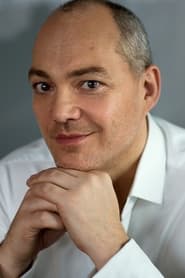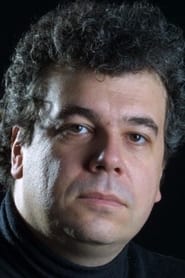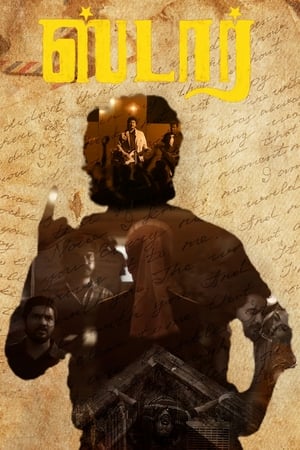
Manon Lescaut(2014)
Best Manon Lescaut on disc!! Unbelievable Performances!
Manon Lescaut's production was updated and it worked. Highly professional production with two of the best performances I've ever witnessed in any opera. By the end of the third act I was crying and by the end of the fourth act I could not stop the tears. These two can not only sing up a storm they act one as well. This is the best Manon Lescaut I've ever seen and hope the upcoming one at the Met is as good. It truly was thrilling. Kaufmann and Opolais were unbelievably fantastic and the orchestra was superb. Pappano is the kind of maestro you want to sing for as he coaches as in the old days of maestros like Levine, etc. This is highly recommended as a keeper!


Movie: Manon Lescaut
Top 8 Billed Cast
L’Oste
Il Maestro di Ballo
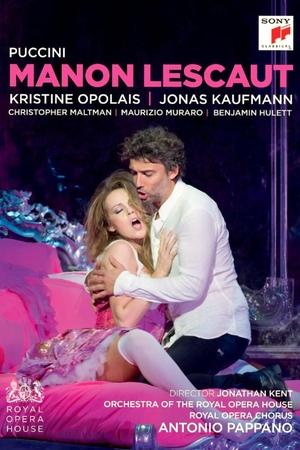
Manon Lescaut
HomePage
Overview
Manon Lescaut's production was updated and it worked. Highly professional production with two of the best performances I've ever witnessed in any opera. By the end of the third act I was crying and by the end of the fourth act I could not stop the tears. These two can not only sing up a storm they act one as well. This is the best Manon Lescaut I've ever seen and hope the upcoming one at the Met is as good. It truly was thrilling. Kaufmann and Opolais were unbelievably fantastic and the orchestra was superb. Pappano is the kind of maestro you want to sing for as he coaches as in the old days of maestros like Levine, etc. This is highly recommended as a keeper!
Release Date
2014-09-04
Average
10
Rating:
5.0 startsTagline
Best Manon Lescaut on disc!! Unbelievable Performances!
Genres
Languages:
ItalianoKeywords
Recommendations Movies
 10.0
10.0Giordano: Andrea Chernier(it)
“Kaufmann is performing the title role for the first time, and it’s hard to imagine him bettered. His striking looks make him very much the Romantic and romanticised outsider of Giordano’s vision. His voice, with its dark, liquid tone, soars through the music with refined ease and intensity: all those grand declarations of passion, whether political or erotic, hit home with terrific immediacy.” – The Guardian Presented in its Covent Garden premiere in January 2015, this staging – directed by David McVicar and conducted by the Royal Opera’s Music Director, Sir Antonio Pappano – shows a bloody tricolour daubed with the words “Even Plato banned poets from his Republic” – written by Robespierre on the death warrant of the historical Chénier, a poet and journalist sent to the guillotine in 1794 for criticising France’s post-revolutionary government.
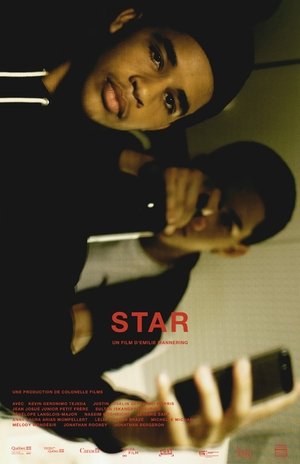 5.8
5.8Star(fr)
Star follows the path of Tito and Jay, two brothers living in the Montreal neighborhood of Park Extension. Accompanying these young people in their daily life marked by complicity and intimidation, Star tackles themes dear to teenagers: identity and friendship.
 7.9
7.9The Latin Explosion: A New America(en)
With more than 50 million Latinos now living in the United States, Latinos are taking their seat at the table as the new American power brokers in the world of entertainment, business, politics and the arts. As Latinos’ influence in American society has soared, they have entered mainstream American culture, and the proof is in the music. Executive produced by legendary music mogul Tommy Mottola, THE LATIN EXPLOSION: A NEW AMERICA features a dazzling array of artists at the center of Latino cultural power and influence, including Marc Anthony, Emilio Estefan Jr., Gloria Estefan, José Feliciano, Eva Longoria, George Lopez, Jennifer Lopez, Los Lobos, Cheech Marin, Ricky Martin, Rita Moreno, Pitbull, Romeo Santos, Shakira, Thalía and Sofía Vergara. Narrated by John Leguizamo.
 7.9
7.9Sword Art Online the Movie – Progressive – Aria of a Starless Night(ja)
One month after Kayaba Akihiko's game of death began, the death toll continues to rise, two thousand players having already lost their lives to the ultra-difficult VRMMO world of Sword Art Online. On the day of the strategy meeting to plan out the first-floor boss battle, Kirito, a solo player who vows to fight alone to get stronger, runs into a rare, high-level female player. She gracefully dispatches powerful monsters with a single rapier that flashes like a shooting star in the night...
 5.2
5.2There Are No Saints(en)
A man is imprisoned for a crime he didn't commit. When his wife is murdered and his son kidnapped and taken to Mexico, he devises an elaborate and dangerous plan to rescue his son and avenge the murder.
 6.3
6.3Eye for an Eye 2(zh)
The blind swordsman, skilled in martial arts, named Cheng Xiazi (Xie Miao), accidentally saves Zhang Xiaoyu (Yang Enyou), who has suffered from the destruction of his family. Under the persuasion of the orphan Xiaoyu, Cheng reluctantly keeps him by his side and teaches him skills. Xiaoyu also waits for the opportunity to seek revenge.
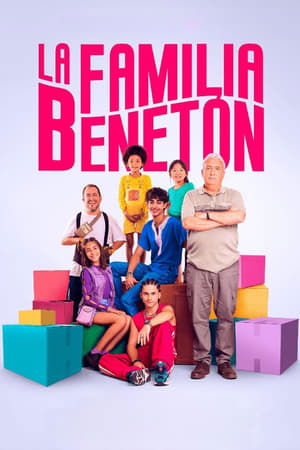 5.4
5.4The Benetón Family(es)
Toni, a grumpy in his fifties, avoids children at all costs. His life changes when he suddenly has to take care of his sister's five adopted children, each from a different country. Toni will have to deal with new parenthood and cultural differences.
 6.2
6.2Night of the Living Dead: Re-Animation(en)
After inheriting the family mortuary, a pyrophobic mortician accidentally exposes hundreds of un-cremated bodies to toxic medical waste. As the corpses re-animate, the mortician's inheritance-seeking younger brother unexpectantly shows up, stumbling upon a full zombie outbreak!
 6.3
6.3An Ideal Father(fr)
Michel, the jovial owner of the only café in a small Normandy town, sees his life turned upside down when his teenage daughter is murdered. The community has his back but soon rumor spreads and Michel is singled out. From the ideal father, he becomes the ideal culprit.
 5.9
5.9The Year I Started Masturbating(sv)
Ambitious overachiever Hanna just needs one more kid before her life is perfect. Instead, her baby daddy unexpectedly dumps her. Suddenly, she finds herself without a place to live, job or family. With every fiber of her being set for victory, Hanna refuses to give up and decides to win him back. But to get there means having to win something much more important, love and desire for herself and who she is.
 5.4
5.4Detective Knight: Independence(en)
Detective James Knight 's last-minute assignment to the Independence Day shift turns into a race to stop an unbalanced ambulance EMT from imperiling the city's festivities. The misguided vigilante, playing cop with a stolen gun and uniform, has a bank vault full of reasons to put on his own fireworks show... one that will strike dangerously close to Knight's home.
 5.8
5.8Something in the Dirt(en)
When neighbors John and Levi witness supernatural events in their LA apartment building, they realize documenting the paranormal could inject some fame and fortune into their wasted lives.
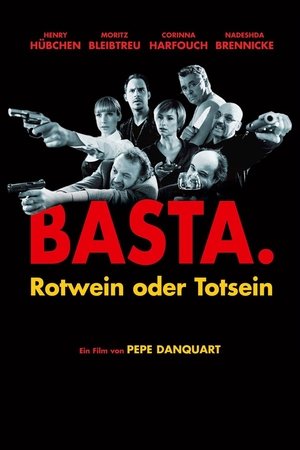 7.1
7.1C(r)ook(de)
A killer for the Russian Mafia in Vienna wants to retire and write a book about his passion - cooking. The mafia godfather suspects treason.
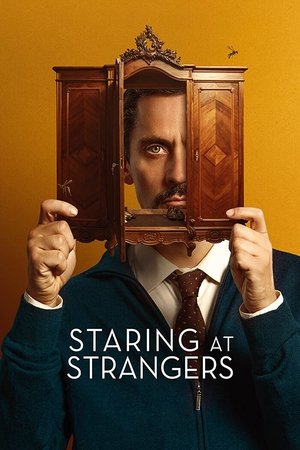 6.4
6.4Staring at Strangers(es)
Carpenter Sergio runs away and hides in a closet after his boss fired him. When the closet arrives at its buyer's house, he decides to stay there, hiding in his new home living with an unknown family.
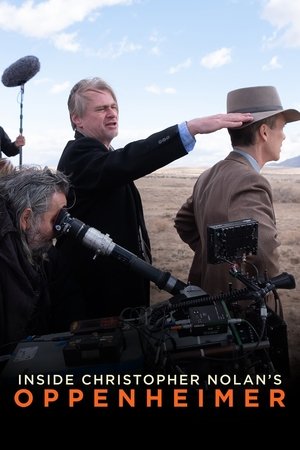 6.5
6.5Inside Christopher Nolan's Oppenheimer(en)
A look behind the scenes of Christopher Nolan's film "Oppenheimer" about an American scientist and his role in the development of the atomic bomb.
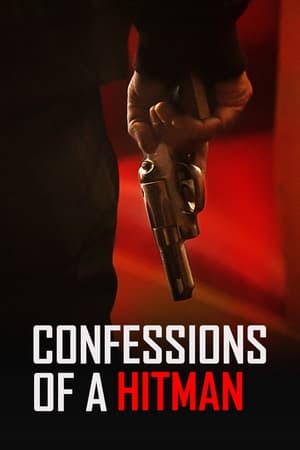 6.4
6.4Confessions of a Hitman(fr)
A paid assassin working for the biker gangs of Quebec outsmarts both the police and the underworld for decades, committing 28 hits over 25 years.
 5.8
5.8The Park(en)
A dystopian coming-of-age movie focused on three kids who find themselves in an abandoned amusement park, aiming to unite whoever remains. With dangers lurking around every corner, they will do whatever it takes to survive their hellish Neverland.
 7.3
7.3Magnum Opus(en)
Groot sets out to paint a family portrait of himself and the Guardians, only to discover just how messy the artistic process can be.
Similar Movies
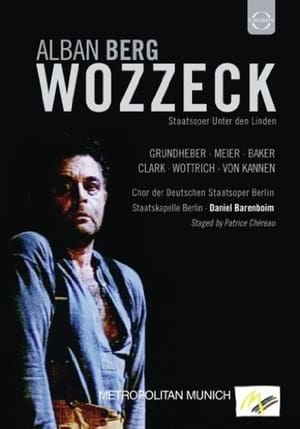 0.0
0.0Wozzeck(de)
Franz Woyzeck, a lowly soldier stationed in a mid-nineteenth century provincial German town, is the father of an illegitimate child by his mistress Marie.
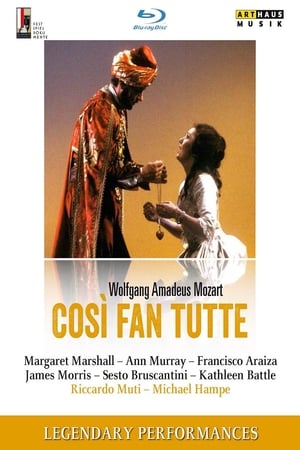 0.0
0.0Cosi Fan Tutte(en)
An excellent performance of this delightful opera. The principals are superb, especially the sisters. Bruscantini as Don Alfonso is past his prime, but he knows and understands the role inside out, so one does not even notice his vocal limitations. Araiza is in top form as Ferrando, and Morris makes virile Guglielmo. The only disappointment is Battle as Despina. Unlike her partners, she does not have feel for the Mozart ensemble, and her vocal mannerisms are totally unbecoming. How the producers allowed that to happen is a mystery. Muti's conducting is terrific, much better than on his La Scala video, where he is uninvolved.
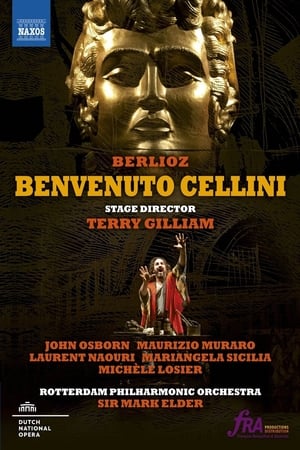 0.0
0.0Benvenuto Cellini(en)
With his affinity for the 16th-century sculptor Benvenuto Cellini's advocacy of artistic and personal freedom, Hector Berlioz went straight for the grand gesture with his first completed opera. Returning to it years after initial production debacles, Berlioz stated that he would 'never again find such verve and Cellinian impetuosity, nor such a variety of ideas.' The plot revolves around Cellini's wooing of Teresa, a match frustrated at every opportunity by his rival, the cowardly Fieramosca. Benvenuto Cellini is a pithy work combining romance, excitement, violence, comedy and spectacle; the perfect stage for Terry Gilliam's stylishly colorful and larger than life directing.
 7.5
7.5John Adams: Nixon in China(en)
John Adams’s groundbreaking work vividly brings to life US President Nixon’s 1972 visit to the People’s Republic of China. Peter Sellars’s Metropolitan Opera production, based on his 1987 world-premiere staging, features choreography by Mark Morris and stars James Maddalena as Nixon, Robert Brubaker as Chairman Mao, Janis Kelly as First Lady Pat Nixon, Russell Braun as Chinese Premier Chou En-lai, and Kathleen Kim as Chiang Ch’ing, Mao’s wife. From the pomp of the public displays to the intimacy of the protagonists most private moments, Adams, Sellars and librettist Alice Goodman reveal the real characters behind the headlines in this landmark American opera.
 0.0
0.0The Ghosts of Versailles(en)
What happened to Figaro and his friends after the events told in Rossini’s and Mozart’s operas? One possible sequel is told in John Corigliano’s “grand opera buffa” The Ghosts of Versailles—an uproariously funny and deeply moving work inspired by Beaumarchais’s third Figaro play, La Mère Coupable, and commissioned by the Met to celebrate its 100th anniversary. This telecast captures its world premiere run, conducted by James Levine. Håkan Hagegård is Beaumarchais, Figaro’s creator, who is deeply in love with Marie Antoinette (Teresa Stratas in a heart-searing performance) and determined to rewrite history and save her from the guillotine. A young Renée Fleming, at the beginning of her international career, sings the unfaithful Rosina. Gino Quilico is the wily Figaro who tries to take matters in his own hands, and Marilyn Horne stops the show as the exotic entertainer Samira.
 6.0
6.01984(en)
Inspired by one of the twentieth century's greatest novels, composer Lorin Maazel evokes Orwell's totalitarian nightmare, where "Big Brother" is always watching, and those guilty of "thoughtcrime" are condemned to face their worst fears in the infamous "Room 101". Filmed during world premiere performances of Robert Lepage's spectacular and psychologically gripping Royal Opera production and conducted by the composer, an international cast brings George Orwell's dark vision to shattering operatic life.
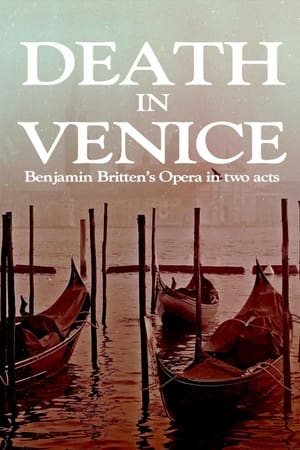 1.0
1.0Death in Venice(en)
Gustav Von Aschenbach, a passionate composer, arrives in Venice as a result of wanderlust and there meets a young man by whose beauty he becomes obsessed.
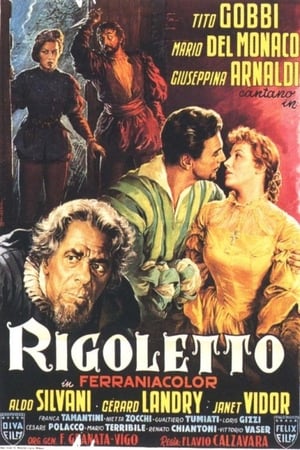 5.0
5.0Rigoletto(it)
This tragic story revolves around the licentious Duke of Mantua, his hunch-backed court jester Rigoletto, and Rigoletto's beautiful daughter Gilda. The opera's original title, La maledizione (The Curse), refers to the curse placed on both the Duke and Rigoletto by a courtier whose daughter had been seduced by the Duke with Rigoletto's encouragement. The curse comes to fruition when Gilda likewise falls in love with the Duke and eventually sacrifices her life to save him from the assassins hired by her father.
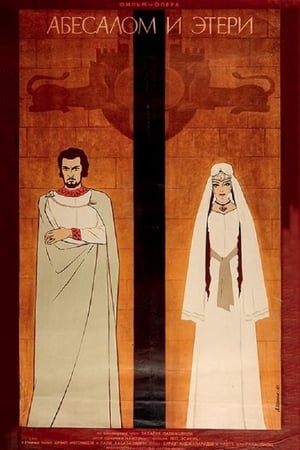 5.5
5.5Abesalom and Eteri(ka)
Prince Abesalom runs into an orphaned Eteri while hunting, falls for her and brings the woman to his palace as his fiancé. The Prince’s aid Murman loses his self-control at Eteri’s beauty and gives her a spelled necklace as a wedding gift. Eteri contracts a mysterious disease that only Murman is capable to heal.
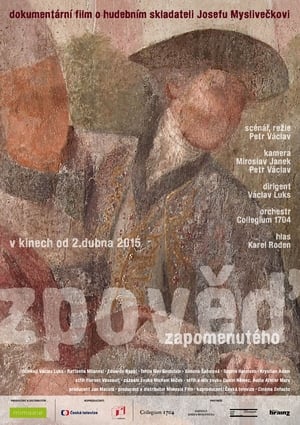 8.0
8.0Confession of the Vanished(cs)
The film follows the staging of the opera Olimpiade while at the same time exploring the dramatic life of its composer Josef Mysliveček, a friend and teacher of W. A. Mozart.
 5.5
5.5Puccini: Turandot(it)
Franco Zeffirelli's magnificient staging of Puccini's final opera - a fairy tale set in a mythical China - is one of the most popular in the Met repertory. In this Live in HD production, Maria Guleghina takes on the title role and Marcello Giordani is Calaf, the unknown prince. Marina Poplavskaya and Samuel Ramey co-star, and Andris Nelsons conducts in his Met debut.
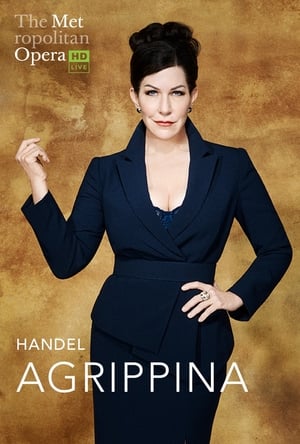 0.0
0.0The Metropolitan Opera: Agrippina(it)
As the imperious title empress, mezzo-soprano Joyce DiDonato leads the Met premiere of Handel’s tale of deception and deceit. Harry Bicket conducts Sir David McVicar’s wry new production, which gives this Baroque black comedy a politically charged, modern updating.
Car Men(xx)
Car Men is a collaboration between the renowned choreographer Jíri Kylían and filmmaker Boris Paval Conen. Based on the opera 'CARMEN' by Georges Bizet they shot a hilarious and poetic short film in the destroyed landscape of a Czech brown coal mine. The actors in this film are older dancers from Kylían's troupe (around 50 years old) and the main prop is a 'TATRA 87', a famous car from 1937.
 0.0
0.0Puccini: Manon Lescaut(it)
All the throbbing eroticism—and ultimate heartbreak—of Puccini’s youthful score is unleashed by James Levine and his top-flight cast. Plácido Domingo is Des Grieux, the handsome, headstrong young aristocrat who falls head over heels for the enticing, impetuous Manon Lescaut (Renata Scotto). Manon returns his love, but her obsession with luxury ruins them both. Gian Carlo Menotti’s opulent production, with sets and costumes by Desmond Heeley, superbly captures the colorful world of 18th century France.
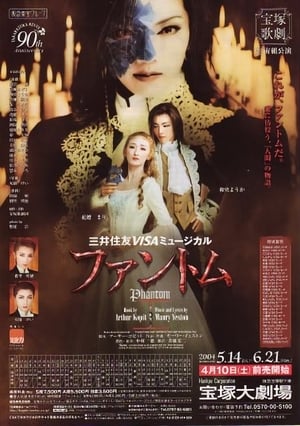 0.0
0.0Phantom(ja)
Takarazuka Revue's Phantom based on the play by Maury Yeston and Arthur Kopit.
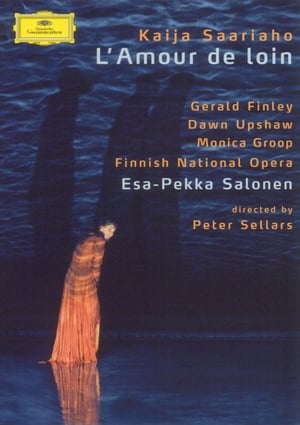 0.0
0.0Saariaho: L'Amour de Loin(fr)
This is the 2004 version of Kaija Saariaho's opera performed by the Finnish National Opera and conducted by Esa-Pekka Salonen.
 0.0
0.0Poulenc's The Human Voice / Bartók's Bluebeard's Castle(en)
Running through Bartók’s disenchanted tale, whose haunting music was initially condemned as unplayable, and the expression of despair in Poulenc’s monologue, the director Krzysztof Warlikowski perceives a shared dramatic thread, a shared feminine consciousness and a shared sense of imprisonment and suffocation: for the woman who penetrates the confines of Bluebeard’s castle and Elle, the woman who clings to a telephone conversation with a man as the only thing worth living for, are condemned to share the same fate. And this man she speaks to, does he really exist? Unless the director has interpreted Cocteau’s words to the letter and the telephone has become a “terrifying weapon that leaves no trace, makes no noise”…
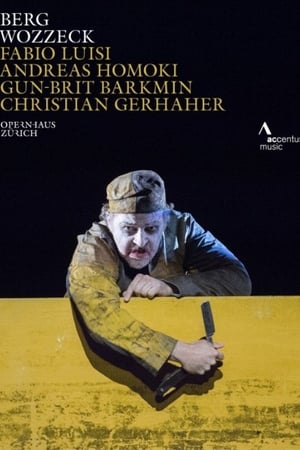 0.0
0.0Alban Berg - Wozzeck(de)
The soldier Wozzeck (Christian Gerhaher) flits through a world that he is unable to decipher. The doctor torments him with absurd medical experiments; the captain humiliates and ridicules him. And Wozzeck’s lover, Marie (Gun-Brit Barkmin), with whom he has a child, cuckolds him with the drum major. Wozzeck becomes a murderer, stabbing Marie to death. Georg Büchner’s drama fragment, on which Alban Berg based his first opera, is an unflinching case study of social injustice and human suffering. But it is also a grotesque piece that thrives on exaggeration – and in which only a fine line separates the unfathomable from the ridiculous. Accordingly, director Andreas Homoki forgoes all realism.


